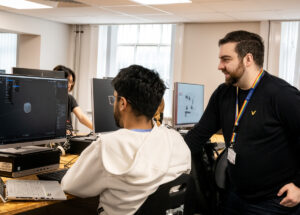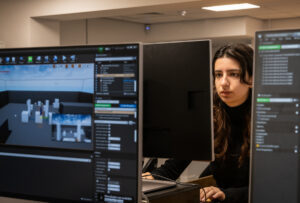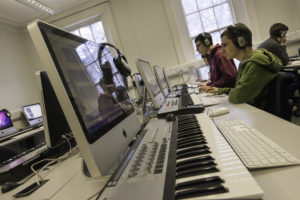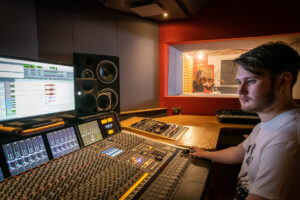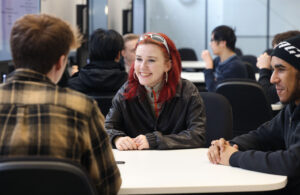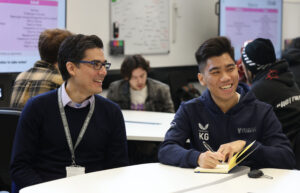How you'll learn
Contact time generally consists of lectures, in which students are presented with core content, and seminars/labs/workshops, in which students discuss lecture topics, readings and work in groups to complete exercises. The practical modules from within the School of the Arts follow a more interactive model of seminar/workshop. These modules stress short practical lessons and exercises in seminars while allowing students to have supervised time to work independently in workshops.
How you're assessed
Assessments include a variety of written components (essays, case studies, creative responses, adaptation exercises, etc.) Inspired by the principles of the TESTA (Transforming the Experience of Students Through Assessment) programme, assessments also include both formative and summative coursework. Modules are largely designed to emphasise practical development by means of interactive workshops, small-group work, and individual tutorial sessions with instructors.
Liverpool Hallmarks
We have a distinctive approach to education, the Liverpool Curriculum Framework, which focuses on research-connected teaching, active learning, and authentic assessment to ensure our students graduate as digitally fluent and confident global citizens.
The Liverpool Curriculum framework sets out our distinctive approach to education. Our teaching staff support our students to develop academic knowledge, skills, and understanding alongside our graduate attributes:
- Digital fluency
- Confidence
- Global citizenship
Our curriculum is characterised by the three Liverpool Hallmarks:
- Research-connected teaching
- Active learning
- Authentic assessment
All this is underpinned by our core value of inclusivity and commitment to providing a curriculum that is accessible to all students.

